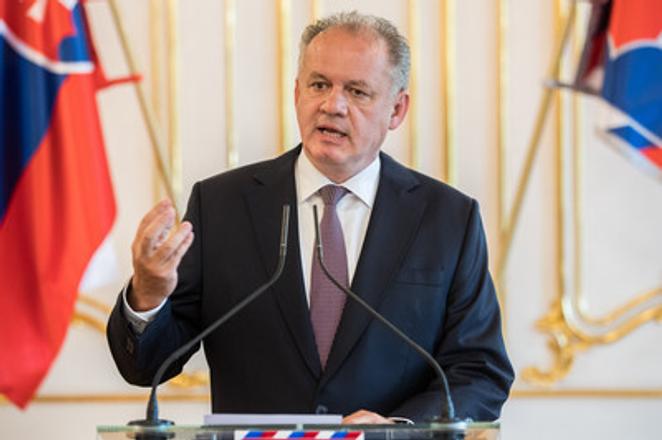Fifty years ago, millions of Czechoslovak citizens were shocked, President Andrej Kiska said in his televised speech on public broadcaster RTVS, marking the 50th anniversary of the invasion of Czechoslovakia by armies of the Warsaw Pact that took place on August 21, 1968.
He continued to say, as quoted by the Sme daily, that radio reporters announced unprecedented news: foreign armies invaded our country. In the streets of villages and cities, tanks rumbled while people stood directly in front of them. In many places, shots could be heard. It all looked like an inconceivable, terrible film. Indeed – who would have believed that one day, armies of so-called “befriended countries”, allies of the Warsaw Pact, would occupy us, he asked.
What was the invasion like?
Would we have believed, Kiska continued, that occupiers would arrest top representatives of our country, led by Alexander Dubček, and take them to the Soviet union? Unfortunately, it did happen. Out homeland was overwhelmed by half a million soldiers, more than 6,000 tanks, 800 aircraft and 2,000 pieces of artillery.
Soviet divisions attacked us overnight from the east, west, north and south, joined by Polish, Hungarian and Bulgarian troops. And units of the East German army stood at the borders as a reserve, the president stressed. He added that the greatest occupation in the history of the Warsaw Pact proved successful, with the whole republic occupied by sunrise. No counter-revolutionaries were found but the country where, until then, hope for a freer life spread, dozens of innocent victims were killed.
1968 and afterwards
After the Moscow Protocol was signed, the horror movie changed into the harsh reality of so-called normalisation. Freedom of press, speech and faith started to be oppressed. At workplaces, humiliating checks and audits were launched, tens of thousands of employees were bullied, laid off, their children were not allowed to study. Many skilled and well-educated people emigrated.
The power was taken over by unscrupulous individuals leaning on Soviet bayonets. Today, I address you from Sliač – the place where the last foreign soldiers left after a long 23 years. They left behind a devastated country, destroyed flats, but most of all thwarted hope for change in 1968, stressed Kiska.
It is the duty of contemporary democratic politicians to defend our freedom and our right to make decisions about our future without concerns that the said decisions will be trampled by brutal force.
Memory lives on
Thus, we need allies subscribing to the same values and respect for freedom, human rights and democracy, stated Kiska, adding that we have such allies in the EU and NATO, the two foundation stones of our prosperity and security. The president asked for one request of his to be heard:
The occupation of our country by armies of the Warsaw Pact is condemned today by three fifths of Slovakia’s inhabitants. However, there’s a growing number of those who know very little about it or nothing at all, particularly among young people. Thus, he has plead to parents, teachers, relatives and people who lived through the events to find some time and share their memories and experiences with young people. To ensure they understand those times of hope, but also moments of betrayal, desperation and humiliation. Lastly, it's important they commemorate the victims of the occupation and the fundamental change brought by November 1989.
So that our history lives on, Kiska suggested, according to Sme, that the words “never more” do not just mean determination but they also require sensible, responsible decisions.



 President Andrej Kiska (source: SME)
President Andrej Kiska (source: SME)